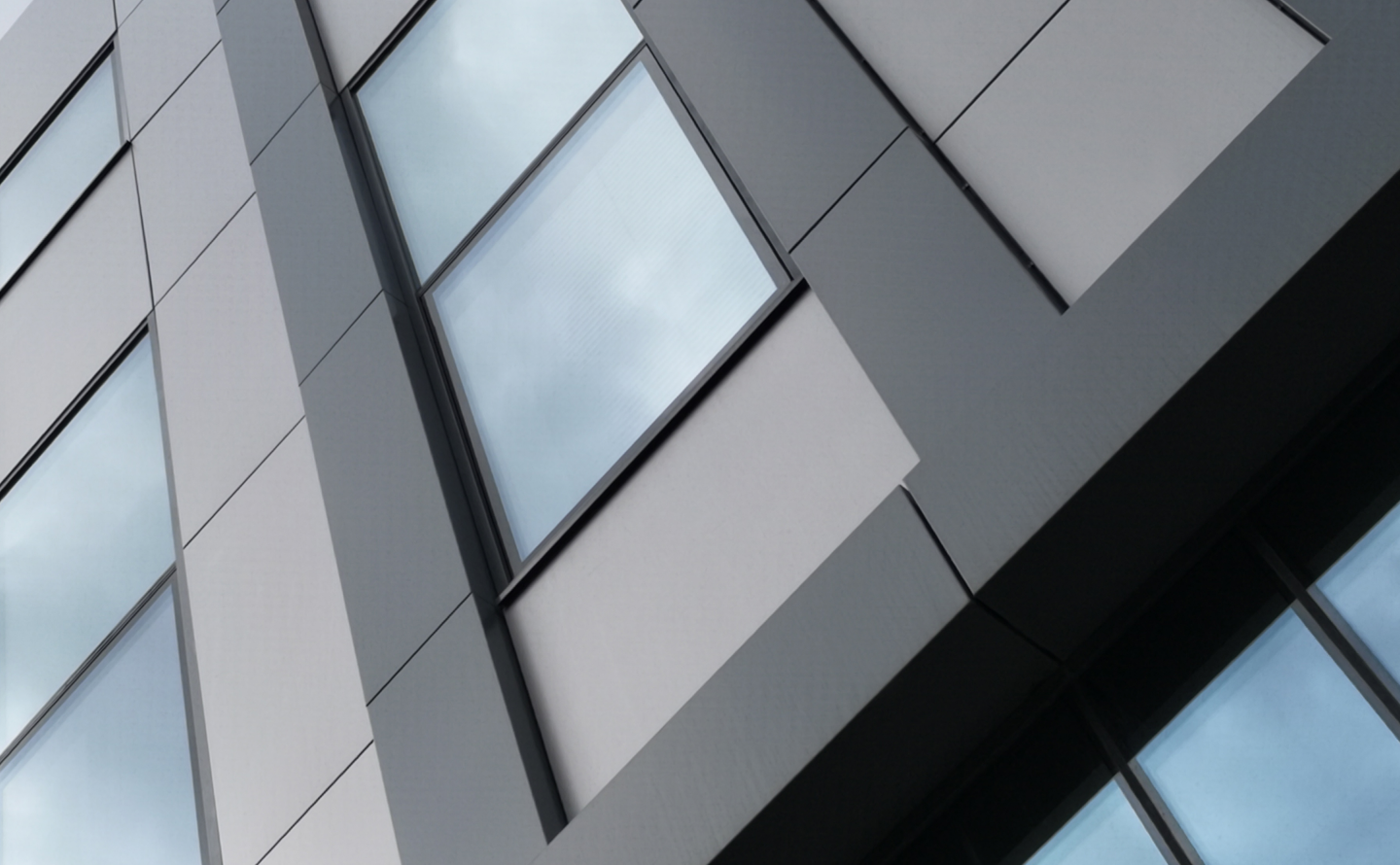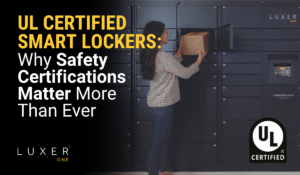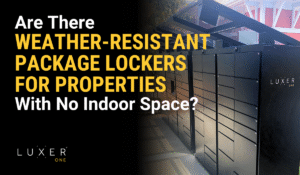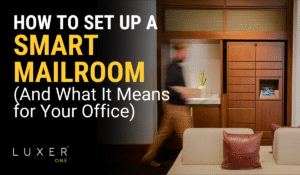Luxer One was featured in this Associated Press story on the innovations solving for the boom in online shopping and package deliveries. Read on for our perspective on how apartment managers can solve their operational challenges.
Read the article below, or view the original source on Associated Press here.

As online shopping becomes ubiquitous, so do the boxes delivered to homes across the country.
For apartment dwellers — and the managers of the buildings they live in — it’s tough to manage the boxes that pile up, sometimes clogging precious space for days. (If not watched, packages also can be stolen or left out in the rain.)
The problem’s only getting worse, says Rick Haughey, vice president of the non-profit National Multifamily Housing Council, which represents many owners, developers and managers of apartment housing. People are ordering more heavy, oversized and perishable items than ever before, he notes, and building managers are “tasked with finding new and creative ways to meet the demand for package storage, sorting and security.”
The problem is especially acute around the holidays, but continues all year.
“Now, you’ve got a lot of perishables coming in. And things like tires can be ordered online at discount prices. That means four tires are sitting in the leasing office, along with items like flat-pack furniture and even bed mattresses,” Haughey says. “They might be there for days or potentially weeks if you’re away on vacation. There doesn’t seem to be a perfect solution, but locker systems and delivery hubs come close.”
There are a growing number of technologies and services aimed at alleviating the delivery problem in apartment foyers.
UPS, FedEx and Amazon all have begun offering services to help manage the flow of delivery boxes. The Amazon Hub program, for example, includes Amazon Locker, based at third-party locations like Whole Foods; Locker+, with staffed locations for pickups and dropoffs; and Apartment Locker, which accepts Amazon and non-Amazon packages in apartment buildings, among other services.
Luxer One, a company based in Sacramento, California, provides secure lockers in buildings in the United States and Canada that can be accessed by both delivery companies and residents — including compartments for very large boxes and refrigerated lockers for perishables. The lockers can be placed inside or outside apartment buildings, and are accessible using codes.
“It’s a huge issue for a lot of apartment buildings. There’s a security factor, but also a convenience factor. Building management offices aren’t open as late as some residents need them to be in order to retrieve packages, and in some cases, just accepting a building’s packages can easily become a full-time job,” says Melody Akhtari, spokeswoman for Luxer One, which started out in 2005 with lockers in apartment buildings for dry cleaning.
“A couple years in, a few buildings asked us if we could do something to help with all the boxes that were being delivered. In 2013, we launched across the United States and Canada, and our lockers are now in over 3,500 locations,” she says.
Along with smart lockers, there are services that arrange deliveries for a specific time when residents know they’ll be home; or let recipients have packages delivered to secure hubs or other locations that are conveniently located and open late.
“The challenge is that in an apartment building with, say, 400 units, you have FedEx, UPS and USPS all stopping by at multiple times of the day to make deliveries. And these are not just small standard packages. One person might be receiving a Casper mattress and another might be receiving a box of flowers that needs refrigeration,” says Akhtari.
But such locker systems can be pricey, and in buildings without them, residents can use services offered either by the shipper or by some retailers. Jet.com, for example, which is owned by Walmart, has installed lockers in hundreds of New York apartment buildings.
There’s also a service called Fetch (www.fetchpackage.com), which collects packages, stores them offsite and delivers them when the recipient is home, taking the burden off building managers.
In some cases, buildings have converted space into package storage rooms and hired additional staff to deal with deliveries. In other cases, they have decided not to accept packages at all, so residents must rely on one of the outside services.
“Managing deliveries can be especially challenging in high package volume markets like New York, Washington, D.C., and Chicago,” says John Falco, principal at Kingsley Associates which, with the National Multifamily Housing Council, published a report on the issue. “In higher-density, urban areas, space is often at a premium, so package storage solutions are important.”
And the challenge doesn’t end at delivery and storage. Once the boxes are opened, some are shipped back as returns, while others create a trash or recycling headache. According to the report, issued in November 2018, over 40 percent of respondents said the large volumes of cardboard and packaging materials being disposed of have created a waste management challenge.
Luxer One provides smart locker solutions for multifamily, retail, office, mail center, and university. Want to learn how we can help you manage your package problems from online shopping? Reach out to a member of our team.
-
Christina Draper, Marketing Content Manager at Luxer One, creates storytelling-driven content that connects with property management professionals and highlights innovations in multifamily package management. With a marketing background from UNC Charlotte, she develops cross-channel campaigns that showcase how Luxer One is redefining the resident experience.
See Posts





